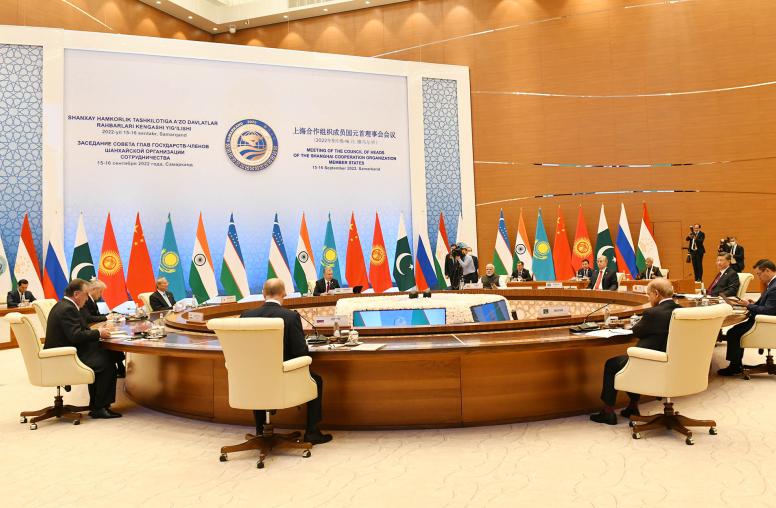USIP Grants Supporting Conflict, Peacebuilding Projects in Kyrgyzstan
USIP awards two new grants to international groups that will work in Kyrgyzstan to help detect nascent conflicts and to bolster mediation and conflict resolution skills in the Central Asian nation.

The U.S. Institute of Peace (USIP) this year has awarded two new grants to international groups that will work in Kyrgyzstan to help detect nascent conflicts and to bolster mediation and conflict resolution skills in the Central Asian nation.
In differing ways, both grants aim to support efforts to prevent a recurrence of the deadly ethnic conflicts that hit Kyrgyzstan in April and June 2010, when hundreds of people were killed during and after the popular overthrow of the country’s previous regime.
“USIP’s mission gives priority to conflict prevention as much as it does to conflict resolution and mediation,” says Raya Barazanji, the Institute’s grant officer with oversight responsibility for the two grants. “In recent years, we’ve focused our grant-making to support building the capacity of civil society to promote peacebuilding and prevention of violent disputes in post-conflict countries.”
Adds Abiodun Williams, acting senior vice president of USIP’s Center for Conflict Management, “Central Asia is a region of importance to U.S. national interests. The situation in Kyrgyzstan remains fragile, and there are continuing risks to the country's stability."
The first grant, awarded through USIP’s annual grant competition, was made to the Agency for Technical Cooperation and Development (ACTED), a Paris-based organization with offices worldwide. USIP’s funding will support the development of an interactive, electronic system that is intended to generate early warnings of conflict using socioeconomic indicators.
After the June 2010 violence in the country’s Ferghana Valley, ACTED—with support from the U.S. Agency for International Development—created an early-warning system known as REACH that tracks sources of tension between communities in Osh, Jalalabad and Batken provinces. The initial phase of that project included mapping more than 100 socioeconomic indicators in the country’s south, as well as convening more than 200 focus groups to illuminate the causes of conflicts.
The next phase, with USIP support, aims to ensure the continuous input of useful data into the early-warning system and the provision of the findings to local authorities and decision makers so they can manage conflicts that arise.
In particular, the project will translate REACH into Uzbek, one of the main languages in the target regions; conduct trainings on REACH for nongovernmental groups; produce and distribute maps on the early-warning information; develop a research report on key findings on conflict mitigation in the Ferghana Valley; and hold national and regional forums on best practices in conflict management.
In the 2010 violence, youth from the capital Bishkek, Osh and Jalalabad were both aggressors and victims. Today, they remain seemingly easy targets for recruitment of violent criminal and extremist groups that are promoting a culture of extortion and intimidation. By contrast, the forthcoming program will seek to build the skills for a culture of peace and respect for ethnic diversity.
In particular, the IREX program will train educators to support youth affected by conflict and to try to prevent it; provide training and support for youth and adult mentors running peer-mediation programs in schools; create a multi-ethnic youth theater performance troupe able to dramatize how conflict resolution can work; and publicize the troupe’s activities through the wide distribution of a professional video.
“Youth are critical for conflict prevention and reconciliation in Kyrgyzstan,” said Williams. “USIP's grant-making will make a meaningful contribution to this process.”



